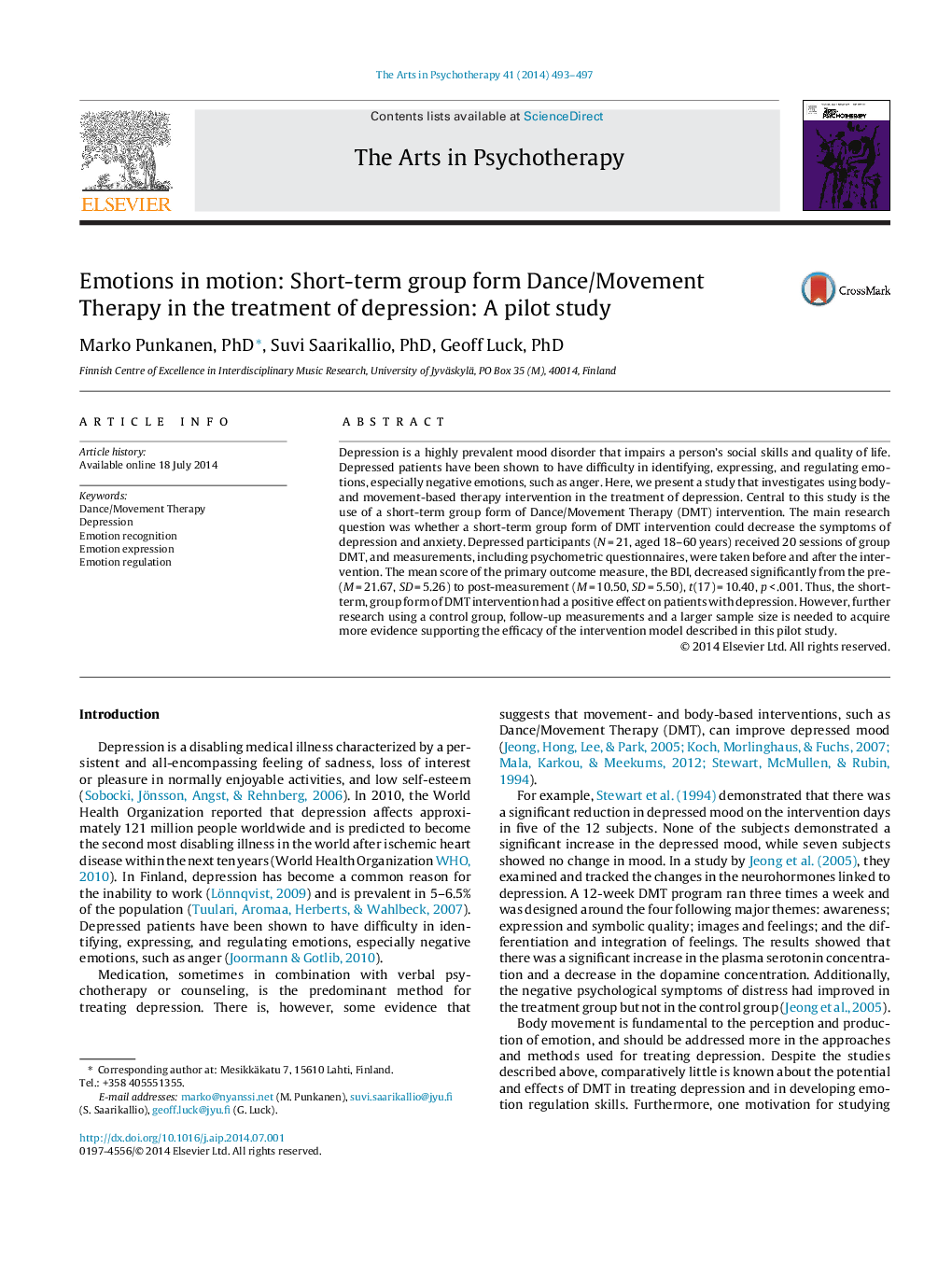| Article ID | Journal | Published Year | Pages | File Type |
|---|---|---|---|---|
| 343602 | The Arts in Psychotherapy | 2014 | 5 Pages |
•The mean score of BDI dropped notably from pre to post measurement.•DMT decreases participants’ features of neuroticism.•DMT increases secure attachment style.•DMT increases satisfaction of life.•Positive changes were measured in participants’ ability to identify their feelings.
Depression is a highly prevalent mood disorder that impairs a person's social skills and quality of life. Depressed patients have been shown to have difficulty in identifying, expressing, and regulating emotions, especially negative emotions, such as anger. Here, we present a study that investigates using body- and movement-based therapy intervention in the treatment of depression. Central to this study is the use of a short-term group form of Dance/Movement Therapy (DMT) intervention. The main research question was whether a short-term group form of DMT intervention could decrease the symptoms of depression and anxiety. Depressed participants (N = 21, aged 18–60 years) received 20 sessions of group DMT, and measurements, including psychometric questionnaires, were taken before and after the intervention. The mean score of the primary outcome measure, the BDI, decreased significantly from the pre- (M = 21.67, SD = 5.26) to post-measurement (M = 10.50, SD = 5.50), t(17) = 10.40, p < .001. Thus, the short-term, group form of DMT intervention had a positive effect on patients with depression. However, further research using a control group, follow-up measurements and a larger sample size is needed to acquire more evidence supporting the efficacy of the intervention model described in this pilot study.
